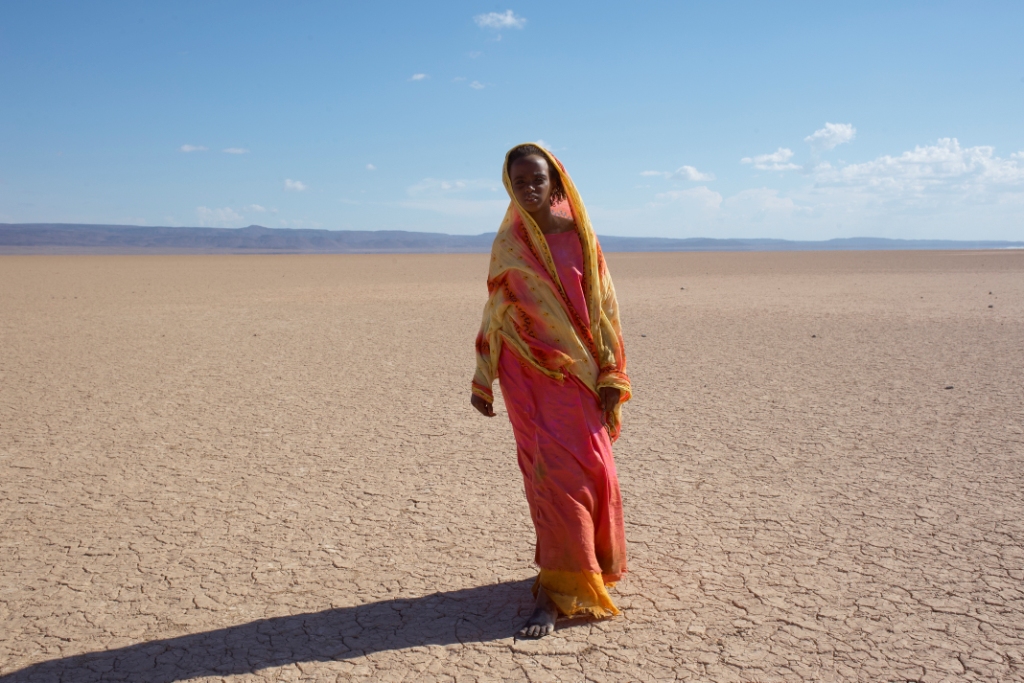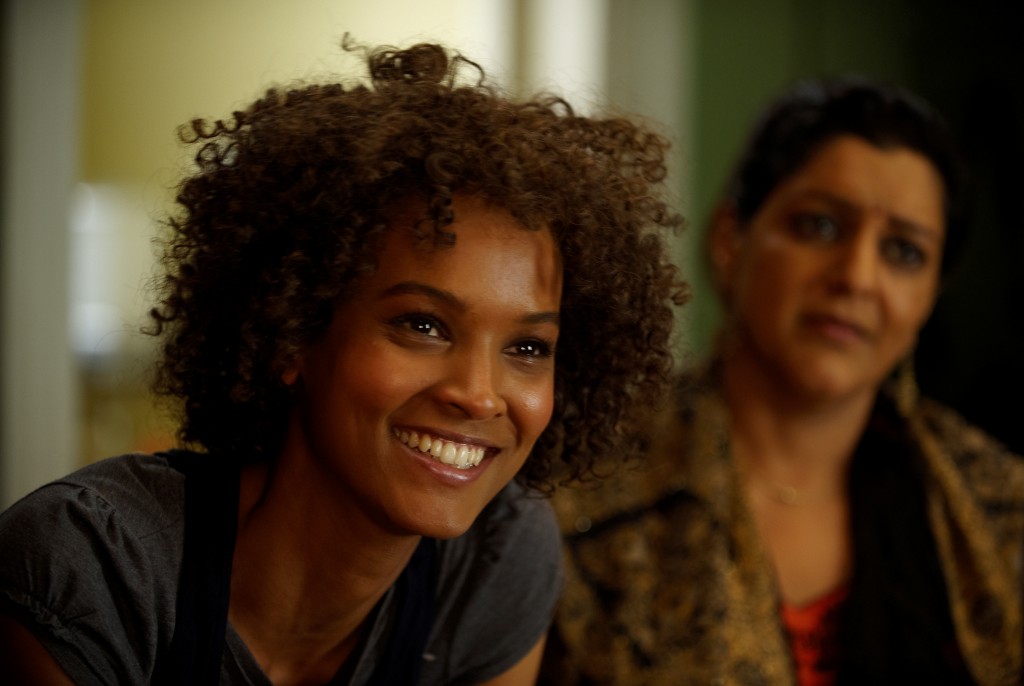It is tempting to view Desert Flower – the film based on the true story of Waris Dirie’s journey from her nomadic childhood in Somalia to supermodel fame – as a modern fairy tale. Tempting to view her encounter with photographer Terence Donovan, who discovered Dirie while she was working at a fast food joint, as magical intervention that transformed the life of a young girl.
Yet do so would be to deny the strength and resilience of this fascinating woman. Dirie is not only the first African model to get an exclusive contract with Revlon, she is also the first woman to receive the Martin Buber Award “given to people who see, listen to and take care of the OTHER and whose achievements constitute factual answers to and solutions of their fellow citizens’ questions and problems.” Desert Flower shows Dirie at age 13 walking alone across the desert to escape a forced marriage, at age 18, fending for herself on the streets of London, and then later, at the height of her fame, speaking out against the injustice of female genital mutilation (FGM).
Written and directed by Sherry Horman based on Dirie’s autobiography, the film was shot on location in Djibouti, London, and New York, with indoor scenes shot in Germany. Dirie’s amazing journey is told with humor and compassion. The film presents the difficult and controversial topic of FGM with unflinching honesty and sensitivity, avoiding sensationalism and exploitation.
The World Health Organization describes FGM as “removing and damaging healthy and normal female genital tissue, and hence interferes with the natural function of girls’ and women’s bodies. The practice causes severe pain and has several immediate and long-term health consequences, including difficulties in childbirth also causing dangers to the child.” The WHO estimate is that between 100 and 140 million girls and women worldwide have been subjected to FGM. Within communities that practice FGM, there is strong cultural and social pressure to conform.
One of the effects of current trends in multiculturalism is to refrain from criticizing the practices of other cultures as an expression of respect for the right to autonomy and self-determination of those cultures. In the debate over FGM there are those who claim that outsiders should not intervene because we cannot understand the culture and its values. Yet as these communities deny the rights of women to their voice as well as their bodies, the woman’s perspective is rarely portrayed in the public media from within, from someone who is, or has been a member of the community. Desert Flower allows the viewer to enter the life of a woman forced to undergo FGM as a small child, through her experiences, relationships and emotions, to come as close as one can to understanding her feelings.
Liya Kebede as Dirie carries the film with her strong presence – she is simply radiant, conveying the inner force that enabled Dirie to thrive. Kebede was born and raised in Addis Abbaba and has appeared in two previous films – The Good Shepard (2007) and Lord of War (2006) as well as on the covers of Vogue, Elle, Harper’s Bazaar and other fashion magazines. In 2005 Kebede was appointed WHO Goodwill Ambassador of Maternal, Newborn and Child Health. Soraya Omar-Scego lends a tenderness and veracity to her portrayal of the 12 year old Waris. Sally Hawkins is vibrant, warm and funny as Marilyn, the shop girl who befriends her, and Juliet Stevenson is hilarious as Lucinda, the cold-blooded fashion agent.
Desert Flower is currently showing in cinemas throughout Israel.
AYELET DEKEL








